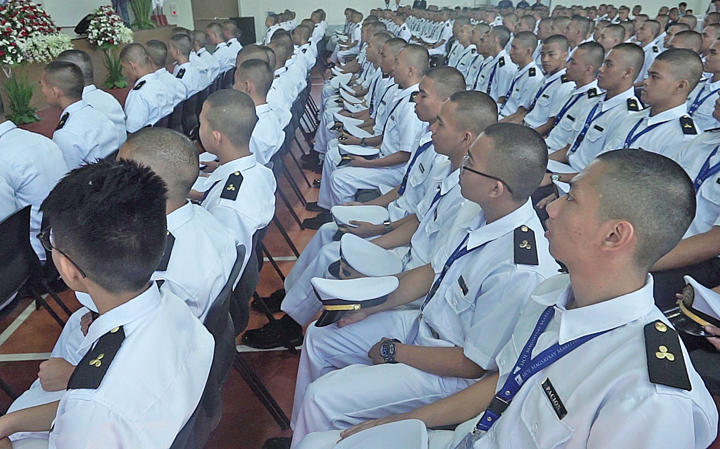
THE Maritime Industry Authority (Marina) said on Monday it has “strongly advocated” for the recognition and inclusion of seafarers’ concerns in the revised International Maritime Organization (IMO) strategy on greenhouse gas (GHG) reduction from ships.
During the 80th session of the Marine Environment Protection Committee (MEPC), Philippine maritime and diplomatic representatives “emphasized the imperative of addressing seafarers’ interests in the strategy,” with Philippine Ambassador to the United Kingdom Teodoro L. Locsin Jr. stressing that seafarers play a “crucial role” in achieving decarbonization objectives in the global shipping industry.
According to the Marina, the Philippines has welcomed the adoption of the 2023 IMO Strategy on GHG Reduction from Ships “as a clear demonstration of the organization’s commitment to combating climate change.”
“Notably, Item 3 in the MEPC resolution, which endorses the revised strategy, acknowledges the significance of addressing the human element and the impact on seafarers and other maritime professionals in ensuring a safe implementation of the strategy,” Marina said.
The strategy emphasizes the need for a comprehensive approach to regulating safety in ships utilizing zero or near-zero GHG emission technologies, fuels, and energy sources.
It also underscores the “importance of assessing the strategy’s effects on seafarers and other maritime professionals.”
By including the concerns of seafarers into the strategy, the IMO shall “evaluate its instruments, guidance, and training standards to facilitate an equitable transition.”
In addition, the Marina said, the Philippine delegation expressed its support for setting the ambitious goal of reaching net-zero GHG emissions from international shipping by 2050.
The delegation also emphasized the importance of scaling up and enhancing programs and partnerships for technical assistance and capacity building.
“These initiatives would particularly benefit developing countries, least developed countries, and small-island developing states in their transition towards sustainable shipping practices,” the Marina said.
The delegation likewise sought stronger collaborations with other nations and industry stakeholders to achieve decarbonization goals.
As part of the capacity-building efforts to support the implementation of the revised strategy, the IMO may develop a training and skills program for seafarers focused on reducing GHG emissions from ships. This program could be funded through initiatives such as the Integrated Technical Cooperation Program (ITCP) and GHG Technical Cooperation Trust Fund, as well as other programs sponsored by member states.
Image credits: Nonie Reyes
